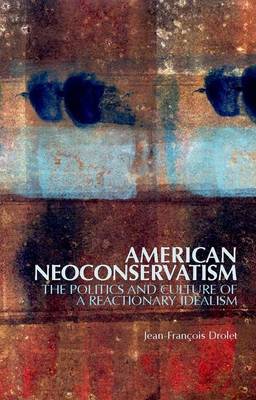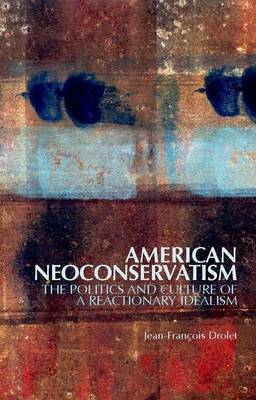
- Retrait gratuit dans votre magasin Club
- 7.000.000 titres dans notre catalogue
- Payer en toute sécurité
- Toujours un magasin près de chez vous
- Retrait gratuit dans votre magasin Club
- 7.000.000 titres dans notre catalogue
- Payer en toute sécurité
- Toujours un magasin près de chez vous
American Neoconservatism
The Politics and Culture of a Reactionary Idealism
Jean-François Drolet
Livre broché | Anglais
29,95 €
+ 59 points
Format
Description
American Neoconservatism moves beyond recent debates over the intricacies of the Bush administration's foreign policy to offer a deeper look at the philosophical premises of this 'new' conservatism in light of the historical events and changing social compacts that have created a demand for it over the past decades. It surveys neoconservative discourses on democracy, the liberal state, capitalism, national security, international law and global liberal governance, and draws attention to the systematic links between the domestic and international dimensions of neoconservative political sociology. Taking issue with neoconservatism's self-image, Drolet argues and demonstrates that American neoconservatism is not the centrist 'liberal' conservatism that it pretends to be--and that many analysts have diagnosed in recent years. To the extent that neoconservatism is committed to the Enlightenment discourse of liberalism, these commitments are firmly subordinated to an authoritarian form of cultural and philosophical conservatism, which is in fact ferociously predatory on liberal values and practices. Neoconservatism is not a conservative variant of liberalism but a deeply atavistic reaction to liberal modernity. It owes a lot more to the authoritarian intellectual milieu of interwar Europe than to the liberal tradition that its protagonists allegedly want to reform and protect against its enemies.
Spécifications
Parties prenantes
- Auteur(s) :
- Editeur:
Contenu
- Nombre de pages :
- 256
- Langue:
- Anglais
Caractéristiques
- EAN:
- 9780199333455
- Date de parution :
- 16-01-14
- Format:
- Livre broché
- Format numérique:
- Trade paperback (VS)
- Dimensions :
- 140 mm x 213 mm
- Poids :
- 408 g







